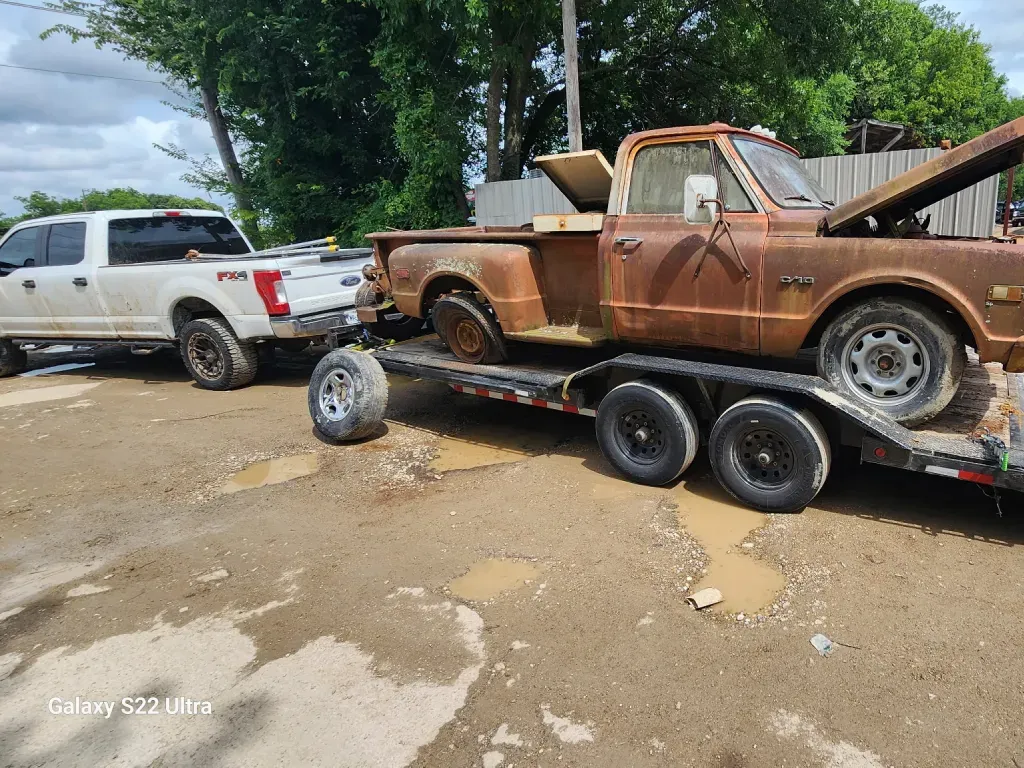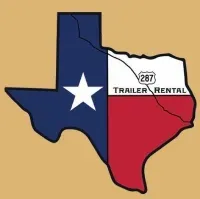Trailer Talk: Tips, How-Tos & Rental Insights
Simple reads. Real results. Built for renters like you
Explore helpful guides, towing tips, and rental advice to make your trailer experience smooth and stress-free. Whether you're hauling a car, moving debris, or starting a side hustle, our articles break down everything you need to know before you hit the road.

How to Tow a Trailer Safely: A Beginner’s Guide to Hauling with Confidence
How to Tow a Trailer Safely: A Beginner’s Guide to Hauling with Confidence
Towing a trailer for the first time can feel intimidating—but it doesn’t have to be. Whether you’re hauling a car, equipment, or yard debris, safety starts with understanding your vehicle, your trailer, and a few basic rules of the road. If you're renting a trailer for the weekend or helping a friend move, this guide will walk you through what to know before you tow.
Know Your Vehicle’s Towing Capacity
Before you even pick up your rental trailer, you need to be sure your vehicle can handle it. Every car, truck, or SUV has a maximum towing capacity, and exceeding it can be both illegal and dangerous.
Check your owner’s manual or manufacturer’s website to confirm:
Gross Vehicle Weight Rating (GVWR)
Maximum Tongue Weight (how much weight the hitch can support)
Whether your vehicle has a factory-installed towing package
Overloading your tow vehicle will strain the engine, brakes, and suspension—never guess, always check.
Choose the Right Hitch Setup
A secure connection is the foundation of safe towing. Most trailer rentals will require a 2" ball hitch, but it’s important to double-check the size and weight rating.
Make sure:
The ball mount is rated for the trailer’s weight
The hitch is properly torqued and level
Safety chains are crossed under the tongue and attached securely
If electric brakes are used, your brake controller is connected and tested
For heavier loads like car haulers, a weight distribution hitch may be recommended to keep your vehicle level and stable.
Practice Loading and Balance
Proper loading is critical. When using utility or car hauler trailers, weight must be evenly distributed, with about 60% of the load in front of the axle to avoid trailer sway.
Tips:
Load the heaviest items first
Keep weight low and centered
Use quality ratchet straps to prevent shifting
Avoid overhanging cargo that can tip or drag
Unbalanced trailers are harder to steer, can fishtail on the road, and put dangerous strain on your vehicle.
Do a Full Walkaround Inspection
Before you leave the rental yard—or even your driveway—do a full check:
Tire pressure on both trailer and tow vehicle
Working lights (brake, turn, and marker)
Functional brakes (test at low speed)
Safety chains connected and crisscrossed
Load secured and tarp (if needed) tied down
This 5-minute check can prevent hours of trouble later. Rental companies may perform their own inspection, but it's still your responsibility once you're on the road.
Drive Like You're Towing
Once you’re hooked up and ready to go, remember: You are not driving a normal vehicle anymore.
Adjust your driving habits:
Take turns wide to avoid curbs or clipping lanes
Accelerate slowly and allow extra braking distance
Avoid sudden lane changes—use your mirrors constantly
Go slower downhill and keep your speed conservative
Be patient—hauling isn’t a race
If it’s your first time towing, take a few laps in a parking lot before heading out on busy roads. Confidence comes from practice.
Plan Your Route Ahead of Time
Navigation matters. Avoid:
Low clearance bridges
Tight alleyways or urban streets
Steep grades without proper braking support
Use apps or GPS systems with trailer or RV modes if possible. You don’t want to end up on a narrow road you can’t back out of with a 20-foot trailer behind you.
Return the Trailer Clean and On Time
When your job is done, bring the trailer back in the same condition you received it. Sweep out debris, remove straps, and alert the rental provider if anything unusual happened. This helps avoid extra fees and keeps you in good standing for next time.
Bonus tip: Take photos of the trailer at pickup and drop-off, just like you would with a rental car.
In Summary
Towing a trailer isn’t difficult when you’re prepared. Know your limits, use the right gear, and drive with extra caution. With a little planning, even first-time haulers can tow safely and confidently.
Hook it, load it, check it, drive smart—that’s the formula for a smooth trailer rental experience.

